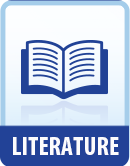|
This section contains 693 words (approx. 3 pages at 300 words per page) |

|
SOURCE: Bush, Douglas. “Essays and Characters.” In English Literature in the Earlier Seventeenth Century, 1600-1660, pp. 190-92. Oxford: Clarendon Press, 1945.
In the following excerpt, Bush points out the literary and thematic characteristics that made Felltham's Resolves popular.
The didactic motives of so much secular prose make it hard to distinguish the essay from kindred forms, and it is almost impossible to separate the religious essay from its congeners. Even within fairly strict limits we find such various names as Breton and Brathwait, Joseph Hall and Fuller, and Drummond and Browne, but here we may pass by these men of many books for a less prolific author. If the essays of Cornwallis partake of the ‘resolve’, Owen Felltham's Resolves, Divine, Moral, Political (1623?) often approach the pure essay.1 Like Cornwallis and the rest, Felltham upholds wisdom and the amateur ideal of culture against mere knowledge and pedantry. He defends the...
|
This section contains 693 words (approx. 3 pages at 300 words per page) |

|


